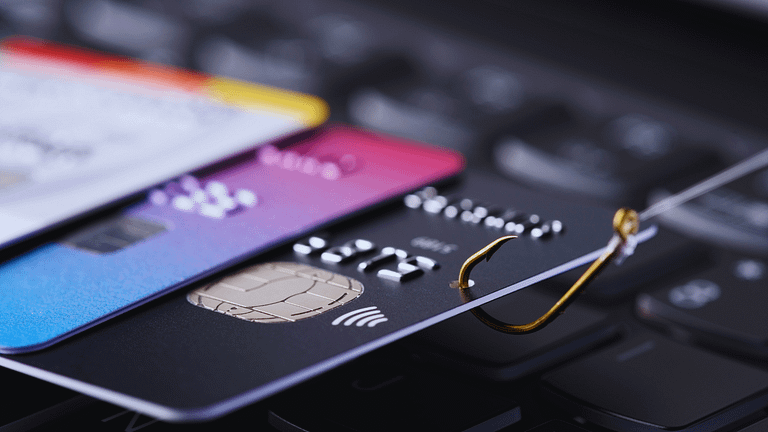When your business processes credit card payments, data security becomes a crucial responsibility.
If you fail to meet the requirements in a PCI compliance test, it can lead to a significant PCI DSS non-compliance charge. These penalties can build up fast, creating financial strain, but they are avoidable.
Next, we’ll explain DSS non-compliance charges, how they affect your business, and how to avoid them.
Understanding PCI DSS Non-Compliance Charge
To avoid costly fines, it’s crucial to understand why these non-compliance charges exist and what they mean for your business.
What Is PCI DSS Non-Compliance?
PCI DSS non-compliance happens when a business doesn’t follow the guidelines set by the Payment Card Industry Security Standards Council (PCI SSC).
These guidelines are about keeping credit card data safe. Your business must meet these security standards if it processes, stores, or transmits credit card information.
Skipping compliance puts your business in danger of fines and significantly increases the chance of a data breach.
Why PCI DSS Non-Compliance Charges Exist
Non-compliance fees or charges are meant to remind businesses to take security seriously.
Payment processors and card brands impose these fees to encourage companies to protect cardholder data. When businesses don’t follow PCI DSS guidelines, they become targets for hackers, which is why these fees exist in the first place.
It’s like a warning system urging you to fix security issues before they lead to something much worse.
What Are the Costs of a PCI DSS Non-Compliance Charge?
The costs of non-compliance can quickly spiral out of control, especially if the issue goes unaddressed for too long.
What starts off as a relatively small fee can grow into something much more severe, depending on how long your business remains out of compliance.
Monthly Non-Compliance Fees
PCI DSS non-compliance charges might start low, at $10 or $100 per month; if the problem continues, those fees can climb fast.
Businesses facing long-term violations could see monthly fines soar to as much as $100,000, turning what seemed like a minor issue into a serious financial hit.
Costs of Data Breaches
A data breach while you’re non-compliant takes things to a whole new level of expense. Here’s what you could be dealing with:
- Forensic Investigations: A forensic investigation is needed to determine what went wrong after a breach. These investigations can be costly, often ranging from a few thousand dollars to hundreds of thousands, depending on the scale of the breach.
- Legal Fees: A breach may lead to lawsuits from affected customers, leading to steep legal fees and potential settlements.
- Compensation Costs: In addition to everything else, you might also need to pay compensation to customers whose data was exposed, which will add to the financial toll.
Extreme Penalties for Larger Organizations
The stakes are even higher for larger companies; in extreme cases, non-compliance fines can reach $500,000 in extreme cases.
And that’s not the end: card brands like Visa and Mastercard can add their own penalties, pushing the total costs even higher.
These combined expenses, including legal fees, investigation costs, and fines, could easily reach millions for big businesses.
Hidden Costs of PCI DSS Non-Compliance
The visible costs are one thing, but what really hurts are the hidden costs of non-compliance.
These are the things that can eat away at your business long after the initial fines have been paid:
Legal Expenses
If a data breach happens because your business wasn’t compliant, prepare for legal troubles.
Customers affected by the breach may file lawsuits, and those legal fees, settlements, and court costs can seriously damage your bottom line.
Even if you avoid a lawsuit, you’ll likely need to pay for legal consultations to deal with the aftermath.
Loss of Customer Trust
Once your customers lose faith in your ability to protect their data, winning them back is tough.
Studies show that most consumers hesitate to return to the affected business after a data breach. Losing trust can lead to long-term sales decline, and it can take years to rebuild your reputation.
Increased Transaction Fees
Non-compliance puts you in a high-risk category with payment processors.
This means you could face higher transaction fees. This ongoing cost cuts into your profit margins and will not go away until you fix your compliance issues.
Loss of Merchant Account
In the worst-case scenario, your payment processor could revoke your ability to process credit card payments altogether.
Losing your merchant account means you’ll be out of business until you can resolve everything. This can be a death blow for businesses that rely heavily on card transactions.
Key Causes of PCI DSS Non-Compliance
Knowing what leads to non-compliance helps you prevent it; here are some common reasons businesses end up falling short of PCI DSS standards:
- Use of Default System Passwords: Many businesses fail to change default passwords on their devices and systems, leaving an easy entry point for hackers.
- Improper Network Security: Weak or poorly configured firewalls and security systems make it easier for attackers to access sensitive data.
- Poor Data Encryption: Failing to encrypt cardholder data properly in transit and at rest increases vulnerability to data breaches.
- Lack of Regular Security Audits: Skipping regular audits means vulnerabilities go unnoticed, increasing the risk of non-compliance and breaches.
How to Prevent PCI DSS Non-Compliance Charges
Avoiding non-compliance is easier than dealing with the fallout. Here are some practical steps to keep your business PCI DSS compliant and avoid fines.
Complete the Self-Assessment Questionnaire (SAQ)
Start by completing the PCI compliance test, also called the Self-Assessment Questionnaire (SAQ).
This will help you assess your current situation and highlight any security gaps that need fixing. It’s an essential step for maintaining compliance, especially for smaller businesses that may not need a full-scale audit.
Regular Security Audits
Scheduling regular audits keeps your business up to date with PCI DSS standards. These audits catch vulnerabilities before they become full-blown security risks.
Think of it as a regular tune-up for your business’s security systems: simple but crucial.
Employee Training on PCI Compliance
Your employees are a key part of the compliance equation; if they aren’t trained on proper security practices, they could accidentally cause a compliance failure.
Regular training sessions ensure that everyone handling sensitive data knows exactly what to do to keep that data secure.
Implementing Firewalls and Encryption
Firewalls are your first line of defense, and encryption ensures that sensitive data is protected; together, these two measures form the backbone of PCI DSS compliance.
If you haven’t already, ensure your firewall is configured correctly and that all cardholder data is encrypted during transmission and storage.
Key Steps to Achieve PCI DSS Compliance
While achieving PCI DSS compliance has benefits, staying compliant takes continuous effort.
Here’s what your business needs to do to reach and maintain compliance:
- Determine Merchant Level and Compliance Requirements: Understand your business’s specific PCI DSS requirements based on your transaction volume to know precisely what needs to be done.
- Use PCI-Approved Devices and Software: Ensure that all payment systems and software used by your business are PCI-approved and up to date with the latest security standards.
- Regular Network Scanning and Vulnerability Tests: Perform frequent scans and vulnerability assessments to identify and address security weaknesses before they lead to compliance issues.
- Maintain Secure Firewalls and Encryption Systems: Keep your firewalls and encryption systems strong and up-to-date to safeguard sensitive cardholder data.
These steps will help you stay current with PCI DSS requirements and protect your business from costly non-compliance fees.
Avoid the Costs of Non-Compliance: We Can Help
PCI DSS non-compliance carries severe consequences, not just in terms of fines but also through hidden costs that can affect your business’s reputation long after the violation.
If you’re looking for a payment solution that helps you stay compliant with PCI DSS and avoid costly mistakes, Premier Payments Online is here to help.
Our goal is to ensure your payment systems are protected and hassle-free, giving you peace of mind and letting you concentrate on running your business. Don’t wait for a compliance issue to arise; let us help safeguard your business today.











